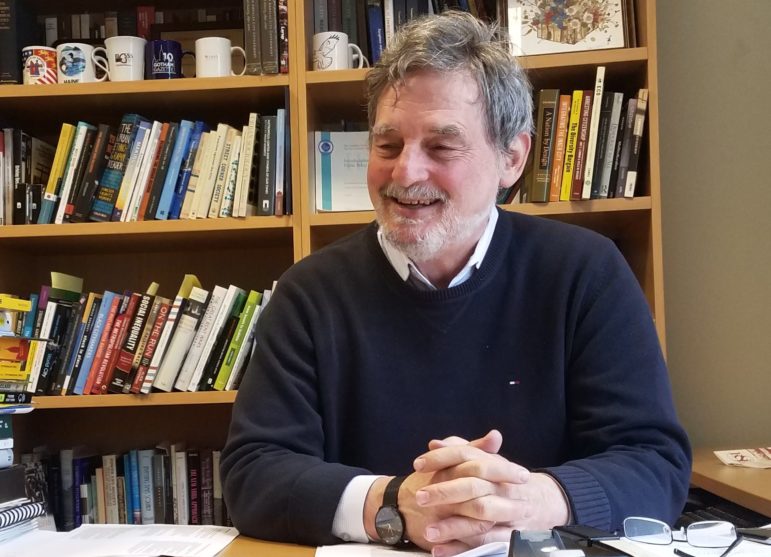
Jarrett Murphy
John Mollenkopf is a distinguished professor of political science and sociology and the director of the Urban Research Center at the CUNY Graduate Center.
“New York City politics is fascinating not only because it binds many interests together in intimate conflict,” John Mollenkopf wrote in his 1994 book A Phoenix in the Ashes, “but because the stakes are so high.”
Mayor de Blasio’s state of the city address on Tuesday night indicated he felt the same way. As he introduced his 10-point plan to reinvigorate democratic participation in the city, the mayor said, “We better understand a proud nation our mission is one of restoration. We must re-democratize a society that is losing its way.”
Mollenkopf, a distinguished professor of political science and sociology and the director of the Urban Research Center at the CUNY Graduate Center, has studied New York City politics since 1972 and is the author or editor of 18 books. In 2013, he was a leading voice in “Toward a 21st Century City for All,” an analysis of the city’s condition after the Bloomberg years and a vision for the de Blasio era.
He spoke with the Max & Murphy podcast about the mayor’s speech, his decision to emphasize democratic participation as his top second-term goal, and some of the specific policy choices—on public financing, ballot access, term limits, partisan elections and more—that the mayor’s promised charter-revision commission might face.
A key theme: That democratic competition is what’s most lacking in the city’s elections. Uncontested races, the lack of any real Republican party to challenge Democratic dominance, low-turnout elections in which a handful of voters decide who gets to make important decisions for the city—these are symptoms and causes of the problems de Blasio’s effort is setting out to solve.
Hear our talk below:








